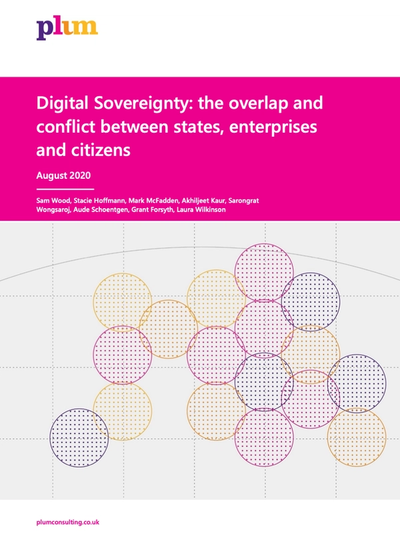Research PaperVisit our research →
Digital Sovereignty: the overlap and conflict between states, enterprises and citizens

Abstract
This paper explores the differing interpretations of digital sovereignty among states, enterprises and citizens, and explores the implication of these differences for the future of the global internet.
Authors:
Although there is no universal definition, digital sovereignty is an umbrella term that refers to the ability to exercise control over digital assets, such as data, content or digital infrastructure, or over the use of those assets. While this concept has arguably existed for decades, it has gained a new currency for a number of reasons, including concerns about state surveillance (stemming from the 2013 Snowden revelations), concerns over the level of dependence on extranational infrastructure and systems, concerns over online harms, and a desire to claim more of the economic benefits of cyberspace.
Access Publication
Publication Document
Plum_Aug_2020_Digital_Sovereignty_states_enterprise_citizens (1).pdf
External Source
View publication at original source
Research Details

- Publisher
- Plum Consulting
- Published
- August 4, 2020
- Last Updated
- August 5, 2022
- Pages
- 28
- Authors
- Stacie HoffmannMark McFadden